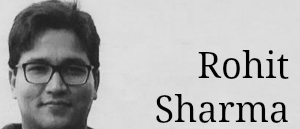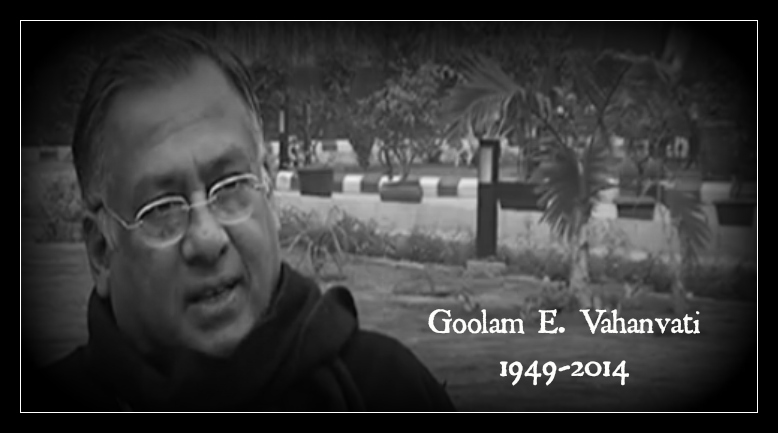 I joined the chambers of Goolam Vahanvati (‘Sir’, to me) on August 6, 2007, the day before final arguments commenced in the reservations case before a Constitution bench of the Supreme Court. I remember gaping incredulously at Sir’s copy of the mammoth judgment in Indra Sawhney’s Case, printed and spiral bound, colour-coded flags marking the start of each judge’s opinion and the important paragraphs in each of the several issues considered by the nine judges. As I would learn in the weeks that followed, that judgment had been the backbone of his case, and he knew each vertebra from every conceivable angle.
I joined the chambers of Goolam Vahanvati (‘Sir’, to me) on August 6, 2007, the day before final arguments commenced in the reservations case before a Constitution bench of the Supreme Court. I remember gaping incredulously at Sir’s copy of the mammoth judgment in Indra Sawhney’s Case, printed and spiral bound, colour-coded flags marking the start of each judge’s opinion and the important paragraphs in each of the several issues considered by the nine judges. As I would learn in the weeks that followed, that judgment had been the backbone of his case, and he knew each vertebra from every conceivable angle.
For the next seven years, in case after case of national importance, I sat beside him as he defended the Union of India, and each time I witnessed the same routine of immaculate preparation.
Preparation was an obsession. He read all his files himself and reserved conferences with briefing counsel for what seemed to be his favourite pastime, that of chastising junior advocates for skipping what suddenly became the most crucial document in the file. When I showed him a judgment on a point of law he wanted researched, he would never go straight to the ‘relevant’ paragraph that I had pointed out. Instead, he would first read the facts of that case, then he would start reading a few paragraphs prior to the one I had indicated, and then finally, he would tell me why the judgment I had dug out could easily be twisted against us by the other side. Youngsters these days, he could often be heard telling a junior advocate, mindlessly punch in key words into a search engine instead of grinding it out with a treatise or a digest. On the rare occasion that a junior pulled out a satisfactory judgment, he would want to know which subsequent judgments referred to that judgment, and all the judgments that this judgment had relied on. “You must show the judges the best judgment in your favour. You will never get past the first one if they don’t like it.”
In a profession naively obsessed with discovering the ‘smartest’ and the most ‘quick-witted’ lawyers, Goolam Vahanvati repeatedly showed that cases are won not by speakers that enthral the visitors’ gallery, but by court-craft and strategy grounded in perfect preparation.
He often spoke about his days as a young lawyer at the Bombay High Court. He never joined a senior lawyer’s practice after he lost his father when he was just two years old at the Bar, but he absorbed different qualities from the different seniors that he observed or assisted. He often said he had learnt the most from ‘Fali’, telling us about the long hours of work he had to put in to meet the extremely high standards that Mr. Nariman expected. During final hearings that stretched out over long periods, when judges would discuss amongst themselves the submissions of counsel, Sir would suddenly ask us, his junior advocates, what the judges were whispering to each other. “You must learn to lip-read”, he would say. “When we were juniors in Bombay High Court, most lawyers would be busy asking how well they were doing, or be looking around the courtroom to see who was hearing them. But Mr. Nariman would be straining to know what the judges were whispering, to know if there were any concerns that needed to be addressed.”
Mr. Vahanvati was universally regarded at the Bar as having a very gentle and respectful style of argument. A master-strategist with a razor sharp mind, he had an uncanny ability to know what another person was thinking about. He also had an amazing sense of humour. During a critical phase of arguments before a Constitution bench, a few days after my daughter was born, one of the judges persisted with a line of questions on an issue where our case was weak. I was sitting three seats away from him. Any other day, sitting in the front row of the most hallowed courtroom in the country, he would have expected us to wear the most respectful and somber expression. That day, exasperated at the judge’s repeated refusal to accept his dodge, Sir whispered at me, “Rohit, you just had a daughter na? Uska pacifier kal lana court mein!”
What really defined Mr. Vahanvati’s advocacy was his effectiveness. His immaculate preparation, eloquence, deference, court-craft, and strategy were geared towards extracting the most favourable order possible for his client in the circumstances – the facts of the case, the bench before which it was listed, and the opposition. I have never heard of another lawyer who, in a review petition, convinced the judges to overturn their own judgment passed suo motu in public interest. Mr. Vahanvati did just that in the case about the appointment of retired judges as Central Information Commissioners under the Right to Information Act, 2002.
During my first month in his office, Sir would often come to the room where we juniors sat, and tell me, “You must ask yourselves, what did I learn today?” As we try to come to terms with the untimely passing away of a great teacher and a true doyen of the Bar, having experienced by his side, seven years of controversial professional life, I can say that I am honoured to have learnt from the best.
Rohit Sharma is an advocate practising before the Supreme Court of India.


One reply on “Goolam Vahanvati was immaculately prepared, a master strategist, and a great teacher”
The standards set out by the legend Goolam Vahanvati shall be duly missed in the Bombay High Court. Dedication to the profession and the hard work involved to shine in this tough profession is a eye-opener for every junior who has started practice in the legal profession.